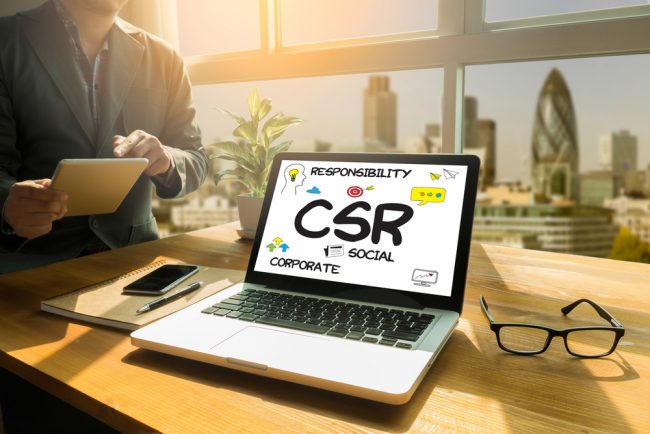Today we are consumers who are ethically motivated and conscious of how the decisions we make as shoppers impact society. In fact, 90 per cent of global consumers are now more likely to switch to a brand associated with a good cause. The conscious consumer is on the rise and wielding influence on businesses like never before.
Companies have traditionally implemented Corporate Social Responsibility (CSR) initiatives to convey their social values to consumers. Until recently, however, a company’s experience with CSR tended to be re-active; frantically trying to repair trust with customers when something has gone wrong (think VW’s 2015 emission scandal or BP’s 2010 oil spill). CSR in the 21st century, however, is no longer about repairing trust when it’s all gone wrong, but about building trust when customers are content. As we start to see a move towards pro-actively using CSR as a way of engaging with customers, employees and investors, what should organisations consider doing to build trust before it becomes too late?
Build trust – for your customers
Since people are now expecting a human, transparent, and authentic experience with brands, CSR can be a powerful starting point for building trust, the sole driver behind developing and maintaining customer loyalty.
Your business may be home to the greatest products in the world but if you can’t build trust with your customers then that immediately becomes irrelevant. Think of both Nike and Apple, hugely successful companies that both had to rethink their supply chain practices, when consumers learned the products they had come to love were being created at an enormous human and environmental expense. With 90 per cent of consumers more likely to trust a company that supports social and environmental issues, this can’t go unnoticed. If you want to connect with consumers today, being transparent as a business is no longer a nice-to-have, it’s a necessity.
The rise of social media has given consumers unprecedented power to demand from companies alignment with their values. Not only has it cultivated a smarter consumer, it’s removed the barriers that once separated people’s business and private lives. Simply log-in to Facebook for example; your feed is a combination of personal, political and business thoughts. This is how we now consume information, and why customer expectations have completely shifted.
Build empathy – for your employees
It’s not just the rise of the conscious consumer we’re seeing, but also the rise of the conscious workforce.
When recently asked, over half of Zendesk’s global employees said that the chance to participate in CSR activities within the business made them happy, and everyone knows that when employees are happy, they are more likely to deliver.
That being said, it’s not about going out and throwing your business at any CSR opportunity available. It’s important to identify something that works not just for the business, but also for the employees. Step two is to try to hire empathetic, understanding employees. If your company has a strong CSR programme, these kinds of employees will naturally be drawn to your business. For those employees that don’t show empathy initially, CSR can be their pathway.
Once an employee plan is in place, organisations can find creative ways to establish and progress the same mentality business-wide. Can you purchase locally from small businesses? Can you work with a social enterprise for catering? Is it possible to include volunteering in your on-boarding process or your team off-sites? Having CSR as part of the workplace environment and not just as a one-off initiative is critical.
Build responsibility – for your business
While nearly all of UK consumers believe businesses now need to be doing more than just making a profit, more than half don’t believe companies are striving to be socially responsible.
Businesses need to be smarter with how they use CSR. In the past, activity was often ad-hoc community projects; you help install a local playground but don’t stick around to meet the children. Ultimately, businesses that are still trying to use CSR as a reason to feel good about themselves aren’t doing it right. Find an activity upon which you can build a long-term relationship with an organisation and begin utilising your workforce, product, or services, to bridge gaps a non-profit might be struggling to fill.
For companies that want to stay relevant and continue to keep up with the new consumers of today, CSR is the place to start. If consumers know a company cares then they are more likely to care and be loyal to the brand. It’s time to transform the culture of your business into one that can keep up with the conscious consumer.


